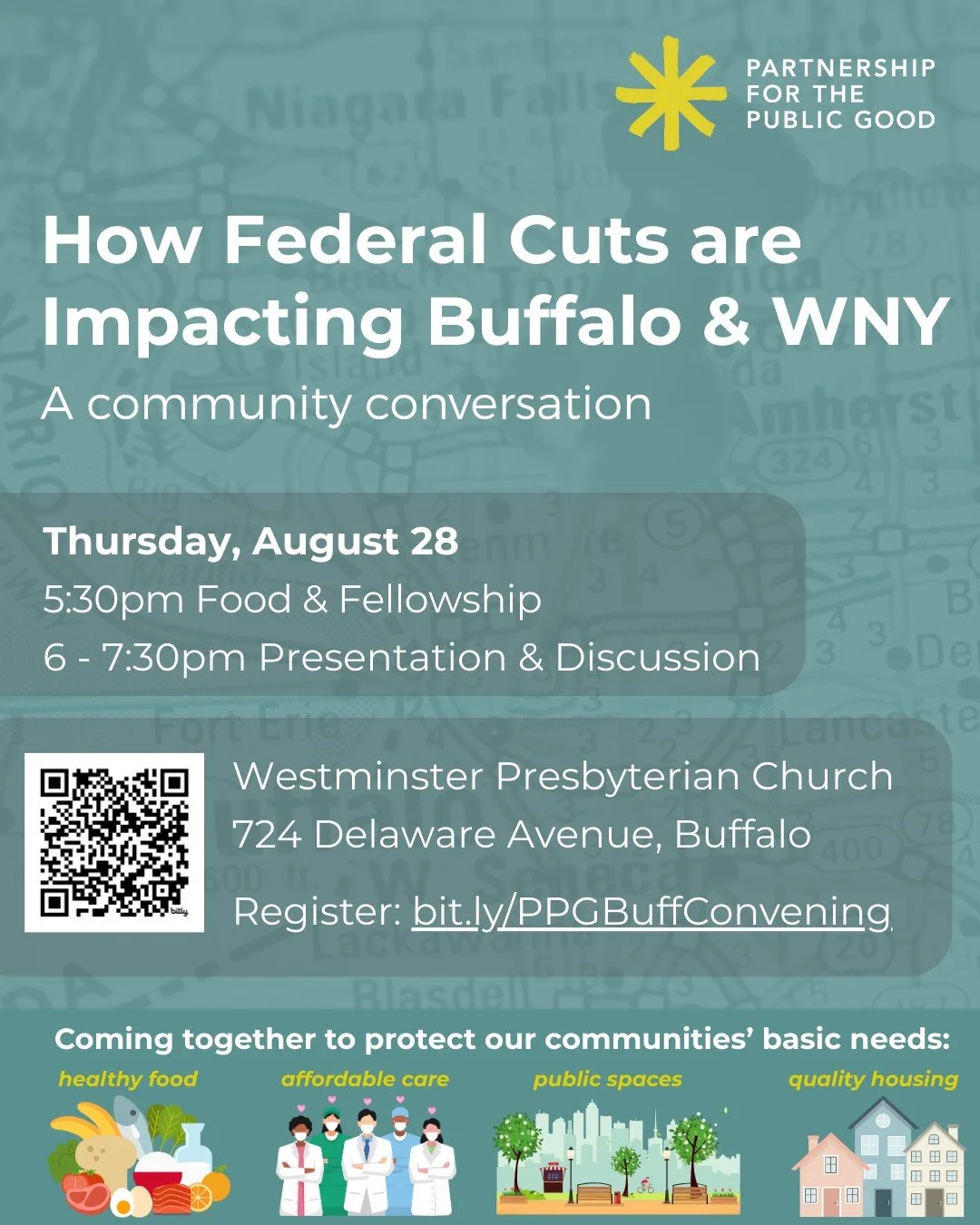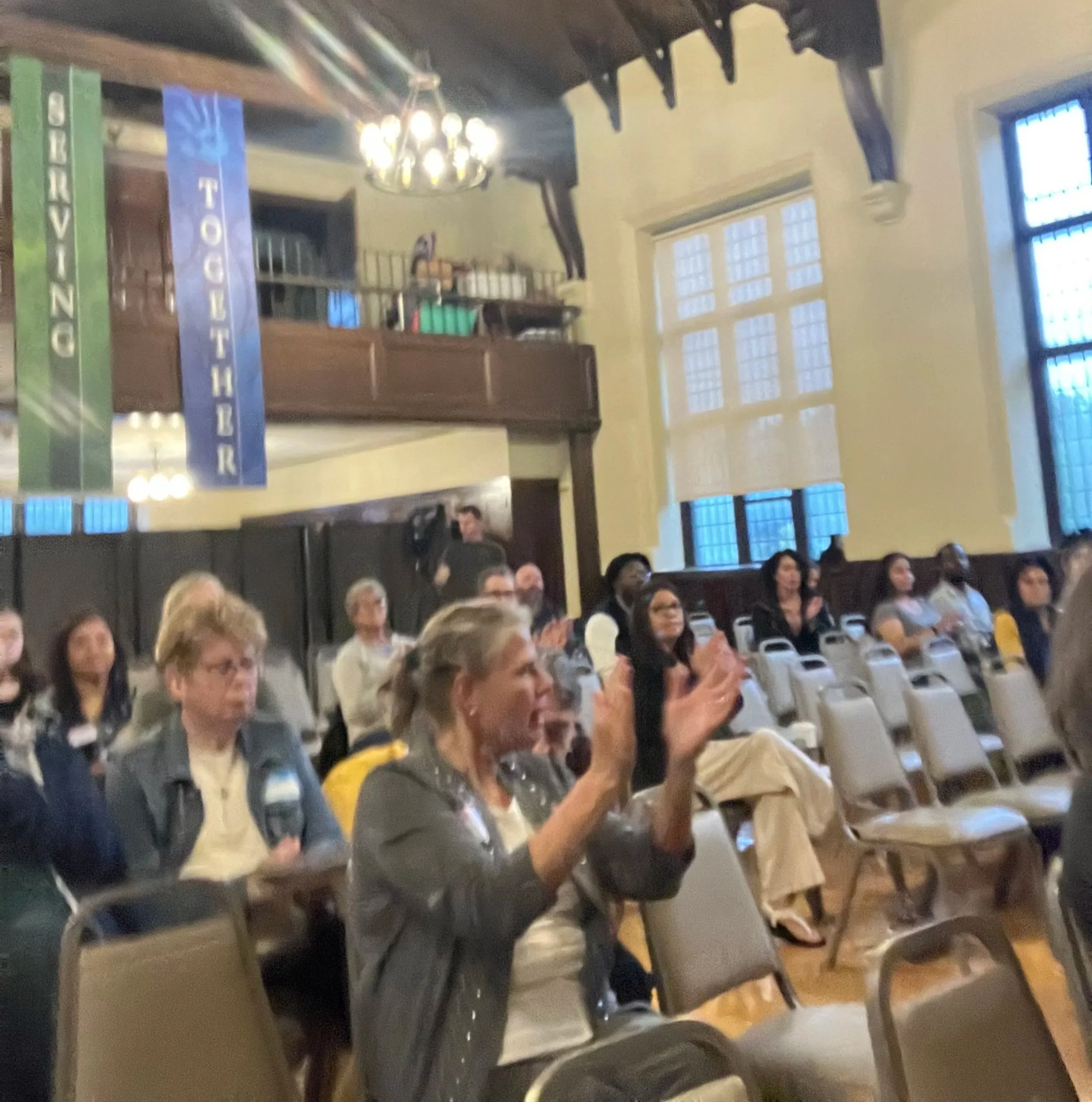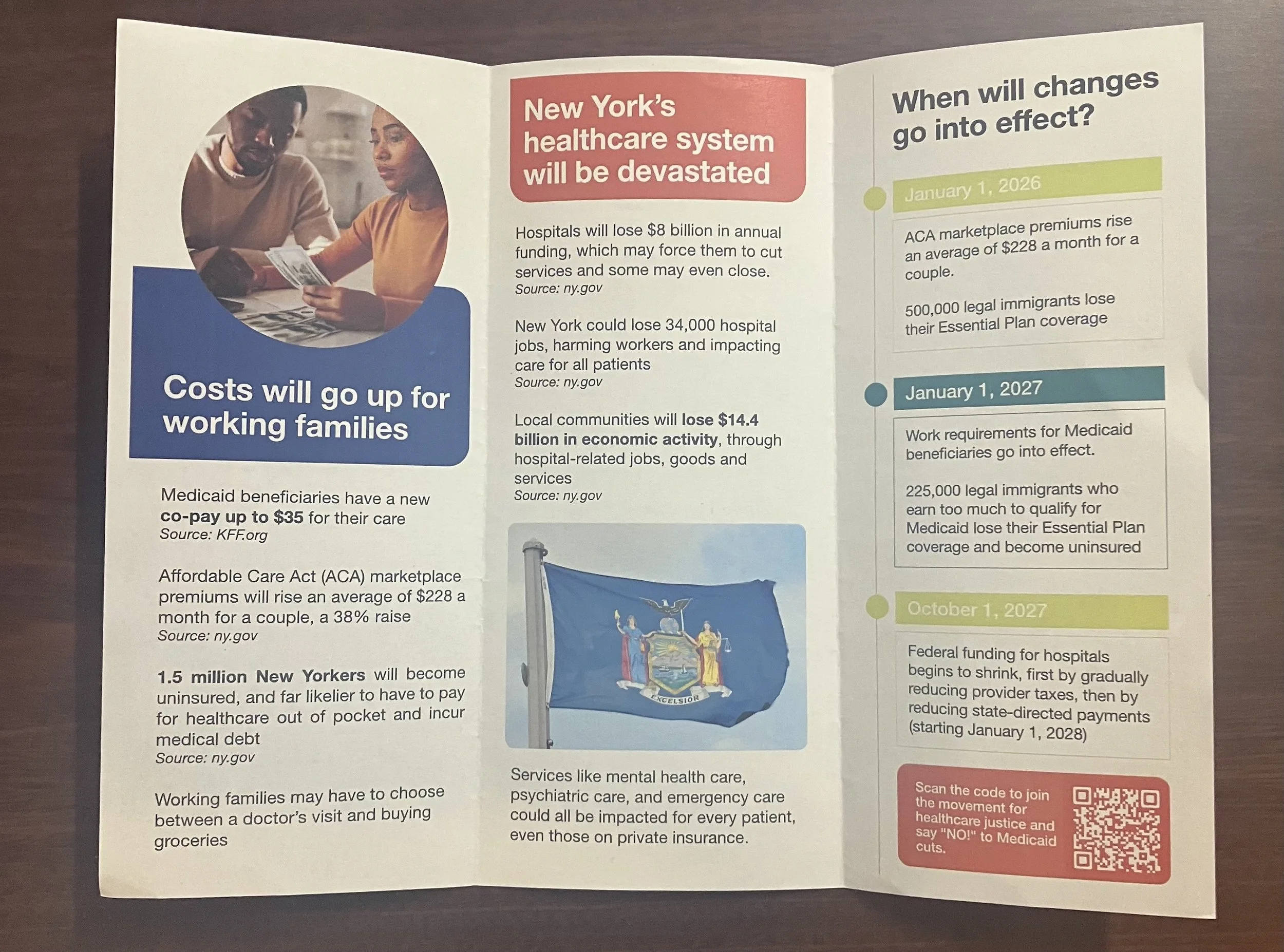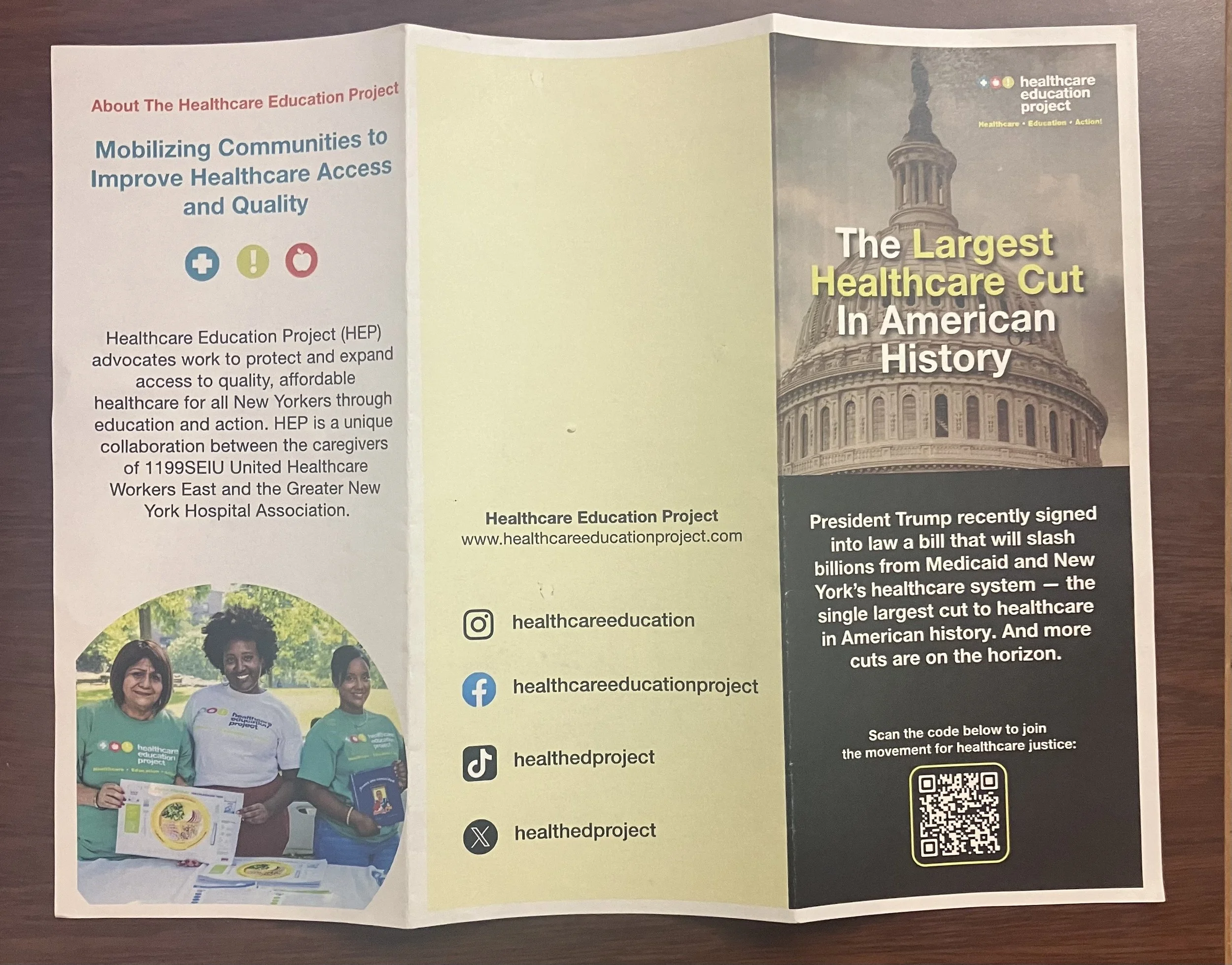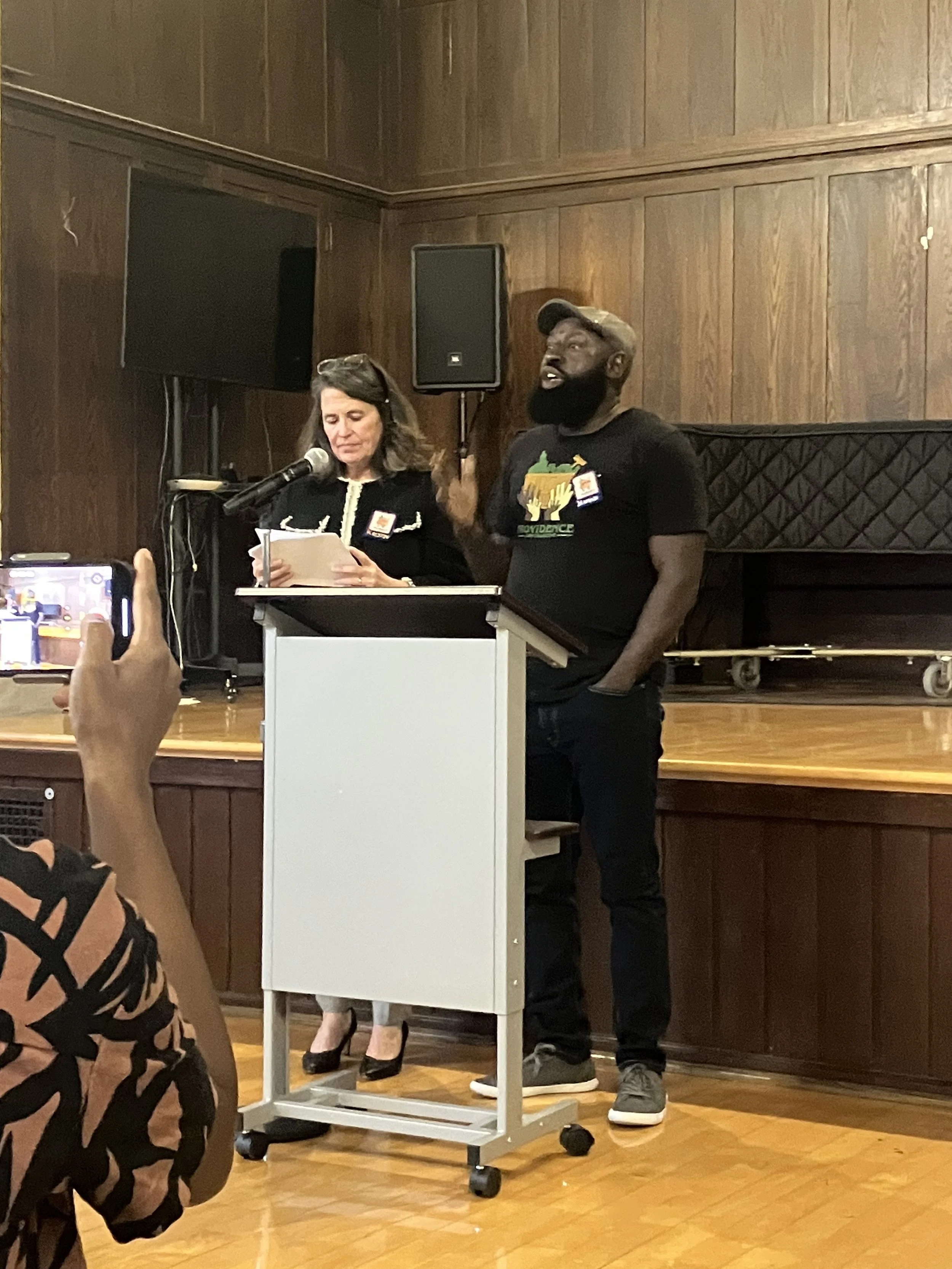An Ugly, Little Law and Its Callous Consequences
On Thursday, August 28, 2025, the Partnership for the Public Good (PPG), a community think tank in Buffalo, New York, hosted a public forum to discuss the local impacts of the “One Big Beautiful Bill Act,” which became Public Law No. 119-21 on July 4, 2025.
PPG flyer announcing the community gathering to discuss the impact of PL 119-21.
The Trump Administration has heralded the new law as an economic boon for the United States. In its analysis of the law, Trump’s Council of Economic Advisors maintained that the bill intended “to avert a $4 trillion tax hike from the expiration of the 2017 Tax Cuts and Jobs Act (TCJA) and to deliver additional pro-growth and pro-worker tax cuts in line with those promised by President Trump.”
Lowering taxes will reduce federal funding for many important, but expensive, programs. The new law, for example, maintains the lower income tax rates established in 2017 and extends them through 2026. To balance against this trillion-dollar loss of tax revenue, the law cuts funding to benefits and safety net programs. Writing for Britannica Money, David Schepp explained that PL 119-21 “scales back federal support for major health and nutrition programs, shifting more responsibility to states and individuals. Among these programs are Medicaid, the Supplemental Nutrition Assistance Program (SNAP), and the Affordable Care Act premium subsidies. These cuts mean that fewer US citizens will qualify for programs that provide vulnerable, impoverished US populations with food and health care.”
While the new law has yet to take full effect, the local impacts have begun to show in cities across the United States. In Buffalo, New York, for example, major health care provider Kaleida Health has decided to close two clinics in western New York, citing funding cuts promised by the One Big Beautiful Bill Act. “The decision was based on several criteria,” said Kaleida in a statement, “including reductions in funding and reimbursement, financial viability and sustainability of these locations and service lines, as well as access to these services in the community.”
Understanding the Ugly, Little Law
In an effort to begin a citywide conversation about the new federal law, PPG called together a forum at the Westminster Presbyterian Church in midtown Buffalo. In particular, the group sought to understand how the new federal law would impact community groups, especially non-profit organizations who provide goods and services to under-served, impoverished, and/or socially alienated populations.
Before an audience of 20-40 community members, PPG representatives reviewed a newly published fact sheet that provides fiscal data on the bill. Titled “Facts on Federal Budget Cuts,” the sheet forecasts devastating impacts on benefits and safety net programs in western New York. PPG research shows that Erie County will lose $90 million in SNAP benefits; the Buffalo-Niagara region will lose $3 billion in Medicaid support; and (at least) 40,000 residents in Congressional District 26, which includes most of Erie and Niagara Counties, will lose health insurance.
PPG fact Sheet distributed at the community forum.
In addition to reporting on the new fiscal landscape of western New York, PPG explained that they are collecting survey data from over 300 partner organizations to learn how funding cuts will impact their operations and community services. The qualitative data gathered by the survey will paint a more detailed picture of how the new law is hurting western New York residents. PPG expects to complete a policy brief reporting the new law’s impacts and strategies for fundraising and policy advocacy to counterbalance the ugly effects of the so-called Big Beautiful Bill.
Community members at the forum hosted by the PPG. (Photo: Steve Peraza)
Callous Consequences
Also at the forum, two partner organizations presented foreboding stories about their early encounters with the new federal law.
First, an organizer from the Healthcare Education Project (HEP), a collaborative group assembled by 1199 SEIU United Healthcare Workers East and the Greater New York Hospital Association, delivered a bleak prognosis for healthcare in western New York. Working families, for example, can expect higher co-pays for Medicaid recipients as well as a 38 percent increase for a couple insured through the Affordable Care Act marketplace premium.
Local hospitals will suffer, too, losing $8 billion in annual funding. The ripple effect of this cut includes the loss of up to 34,000 hospital jobs, further devastating the region’s socioeconomic health.
Fact sheet distributed by the Healthcare Education Project.
A Targeted Attack: The Providence Farm Collective Case
Perhaps the most devastating story shared at the forum involved the Providence Farm Collective (PFC). Founded in 2019, the PFC is located in Orchard Park, New York, where it oversees 29 farms with a collective staff of 250 farmers and volunteers. The PFC generates “nutrient dense foods” for over 11,000 residents of western New York.
The PFC founders are members of western New York’s Somali Bantu Community who “sought access to farmland to grow the foods they had once enjoyed back home” in Somalia. In 2019, these food producers joined with seven other ethnically diverse communities to form the collective, an organization dedicated to “cultivating farmer-led and community rooted agriculture and food systems to actualize the rights of under-resourced peoples.”
Together, the PFC has emerged as a powerful food producer in the region, purchasing their own land in 2023. “Owning the land,” explained the PFC directors in their 2024 annual report, “meant we could invest with confidence, no longer fearful of putting our resources into something we would never truly own.”
Unfortunately, the PFC directors at the PPG forum reported that the federal government has terminated the organization’s grant funding. They directors explained that in 2023, the collective had won a United States Department of Agriculture (USDA) Beginning Farmers and Ranchers Development Program grant for approximately $750,000 over three years to subsidize the PFC’s farmer incubation program. In April 2025, however, the PFC received a letter terminating this grant because the collective allegedly “engages in DEI discriminatory practices and violates federal civil rights laws.”
Providence Farm Collective directors speaking at the forum. (Photo: Steve Peraza)
Not only does the USDA’s claim misrepresent PFC’s mission to help under-resourced community members in western New York, it also uses the PFC’s success to undermine its future.
It remains to be seen whether the PFC’s loss of federal grant funding can be traced directly to PL 119-21 or whether it is simply part of the current administration’s ongoing political assaults on new Americans and non-white American citizens. In many ways, it’s all the same - a callous disregard for the lives and livelihoods of vulnerable populations in the United States.

